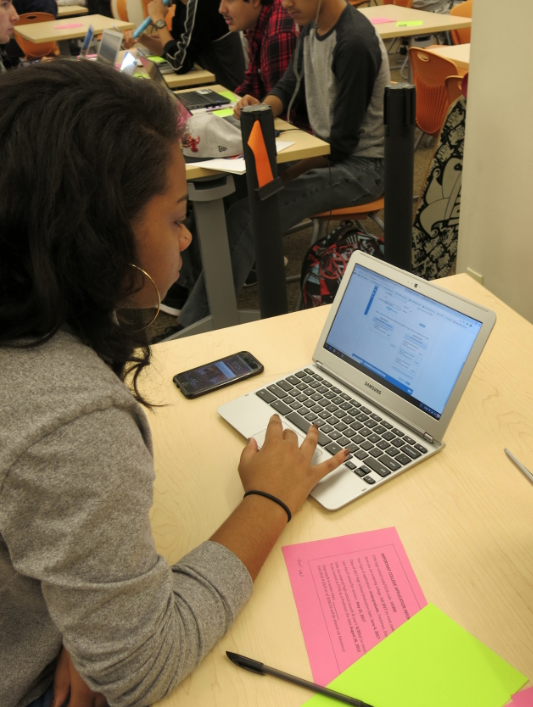Students prove to be outliers as national college enrollment rates start to slip
October 28, 2016
Even as national college enrollment and graduation rates start to decline due to the high costs, ETHS continues to guide students to find the right college and career.
“The media has sensationalized this idea of student loan debt,” College and Career Coordinator Beth Arey said. “This has scared students into thinking that college is too expensive.”
Arey explained that the traditional undergraduate degree doesn’t lead to as much loan debt as people are commonly led to believe.
“There are so many startup technology companies that students are starting to question the value of a degree,” Arey said. “The long-term effects of jobs for these companies are lack of insurance, retirement funding, and job security.”
Research suggests that decreasing college enrollment is due to the improvement in the economy and jobs. Many students, especially those in low-income families, graduate high school and find jobs right away, eliminating the need for college student loans.
ETHS is an exception to these trends because of the resources in place to help students with post-secondary planning. For example, ETHS has more counselors than many other public schools.
“My counselor is my most useful resource here,” senior Mary Claire D’Arrigo said. “They are helpful for students who aren’t clear of where they want to go.”
Whereas nationally 65.9% of high school graduates move on to college, 76% of ETHS graduates have continued on to college over the past seven years.
Oct. 11, Northwestern hosted Kits and Cats day, which gave sophomores the opportunity to explore the college and see what campus feels like. It also separated students based on their interests and allowed them to talk to undergraduates in those areas.
“The most helpful part was being able to see what college is like, and what it takes to be there,” Suvari said.
As for ETHS, even though it is an outlier compared to other public schools, there is still more to do.
“We need to improve on awareness that academics matter early,” Arey explained. “This way students can position themselves better for academic and financial opportunities.”









